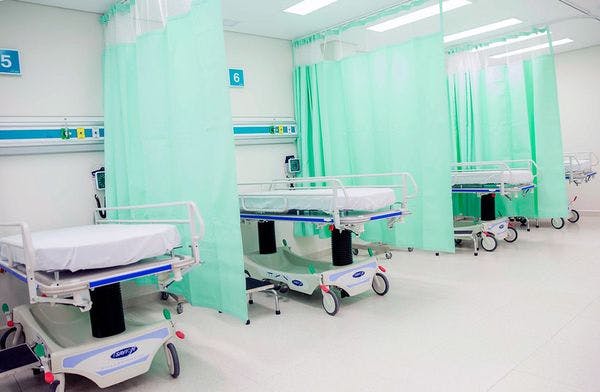Flickr Inauguración del Hospital Municipal de Chiconcuac CC 2.0
Coronavirus thrives on the inequality the government has ignored – this public health grant is too little, too late
By Ian Hamilton, The Independent
Most of the time, we have no idea what public health means or does, but coronavirus has abruptly changed that. It is at the centre of coordinating the testing and intelligence of the coronavirus. The World Health Organisation couldn’t have made its advice to governments any clearer: “You can’t fight a fire blindfolded ... test, test, test.” Unfortunately, we remain blindfolded as only a few thousand tests are carried out daily, significantly short of what is needed.
So, when the chancellor announced his coronavirus war chest and that the government stood ready to do whatever it takes, you’d think public health would be a priority for some of this cash. Not so, the Treasury has increased the public health grant by 4.8 per cent for the coming year, mainly to cover staff costs of NHS services contracted out to local authorities. Wasting no time in sharing its thoughts on this, the Association of Directors of Public Health made clear it was too little too late.
When Boris Johnson frames coronavirus as the worst public health crisis for a generation and then allocates a meagre uplift to the public health budget, it becomes a hollow statement. The public health budget has already suffered a decade of savage cuts, a short-sighted decision which will have an impact on all of us.
Public health includes an array of services: childcare, environmental hazard protection, health data analysis and a whole host of activity that many of us are probably unaware of. Reflecting the ethos of devolved decision-making government, it is left to local areas to decide how much is allocated to this multitude of public services, creating regional differences. The government’s resources are considerable and the impact of how to use them are equally spectacular, as we witnessed in 2008 when our banks were given eye-watering amounts of tax-payers’ money. If a fraction of that bailout were to be allocated to public health, it would pay dividends for years to come as we invest in the nation’s health instead of the wealth of a few bankers.
The function of public health is to enhance the nation’s health by reducing inequality, which against a backdrop of growing national wealth is as embedded as it’s ever been. This crisis will be felt most acutely by those on benefits, zero-hour contracts or low pay who are already facing stark choices between health and hardship. That kind of stress is known to compromise immunity, something that needs to be optimised, not sabotaged, at this time if we are all to stand an equal chance of getting through infection.
The government has a responsibility to ensure no one is placed in the hideous position of risking their health and the health of others by being unable to self-isolate due to financial hardship. We will all soon be reminded of how inequality kills and is not merely an abstract ideology.
Prevention is better than cure, so looking at how we can prevent an escalation in those needing intensive care as a result of contracting this virus is clearly desirable not just for them but for the services and staff providing treatment.
Public health activity directly reduces pressure on the NHS, something that’s beneficial at any time but particularly now. Communicating health messages to us all and those with specific problems such as the homeless is a core part of the public health role. Public health budgets also fund specialist drug treatment services, supporting another group who are at increased risk of not only contracting coronavirus but of dying as a result as they have reduced immunity and poor physical health. Reversing the years of cuts made to these services would not only help these individuals it would help us all.
As Julian Tudor-Hart, a GP working in the coal-mining communities of Wales in the 1970’s observed: “The availability of good medical care tends to vary inversely with the need for it in the population served.” Meaning those with the greatest health need to receive the least in the way of services. Unfortunately, looking at how things have been handled, he’d be making the same observation today.
